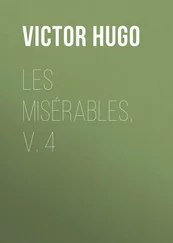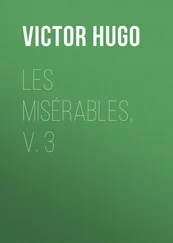A reflection of that heaven rested on the Bishop.
It was, at the same time, a luminous transparency, for that heaven was within him. That heaven was his conscience.
At the moment when the ray of moonlight superposed itself, so to speak, upon that inward radiance, the sleeping Bishop seemed as in a glory. It remained, however, gentle and veiled in an ineffable half-light. That moon in the sky, that slumbering nature, that garden without a quiver, that house which was so calm, the hour, the moment, the silence, added some solemn and unspeakable quality to the venerable repose of this man, and enveloped in a sort of serene and majestic aureole that white hair, those closed eyes, that face in which all was hope and all was confidence, that head of an old man, and that slumber of an infant.
There was something almost divine in this man, who was thus august, without being himself aware of it.
Jean Valjean was in the shadow, and stood motionless, with his iron candlestick in his hand, frightened by this luminous old man. Never had he beheld anything like this. This confidence terrified him. The moral world has no grander spectacle than this: a troubled and uneasy conscience, which has arrived on the brink of an evil action, contemplating the slumber of the just.
That slumber in that isolation, and with a neighbor like himself, had about it something sublime, of which he was vaguely but imperiously conscious.
No one could have told what was passing within him, not even himself. In order to attempt to form an idea of it, it is necessary to think of the most violent of things in the presence of the most gentle. Even on his visage it would have been impossible to distinguish anything with certainty. It was a sort of haggard astonishment. He gazed at it, and that was all. But what was his thought? It would have been impossible to divine it. What was evident was, that he was touched and astounded. But what was the nature of this emotion?
His eye never quitted the old man. The only thing which was clearly to be inferred from his attitude and his physiognomy was a strange indecision. One would have said that he was hesitating between the two abysses,— the one in which one loses one's self and that in which one saves one's self. He seemed prepared to crush that skull or to kiss that hand.
At the expiration of a few minutes his left arm rose slowly towards his brow, and he took off his cap; then his arm fell back with the same deliberation, and Jean Valjean fell to meditating once more, his cap in his left hand, his club in his right hand, his hair bristling all over his savage head.
The Bishop continued to sleep in profound peace beneath that terrifying gaze.
The gleam of the moon rendered confusedly visible the crucifix over the chimney-piece, which seemed to be extending its arms to both of them, with a benediction for one and pardon for the other.
Suddenly Jean Valjean replaced his cap on his brow; then stepped rapidly past the bed, without glancing at the Bishop, straight to the cupboard, which he saw near the head; he raised his iron candlestick as though to force the lock; the key was there; he opened it; the first thing which presented itself to him was the basket of silverware; he seized it, traversed the chamber with long strides, without taking any precautions and without troubling himself about the noise, gained the door, re-entered the oratory, opened the window, seized his cudgel, bestrode the window-sill of the ground-floor, put the silver into his knapsack, threw away the basket, crossed the garden, leaped over the wall like a tiger, and fled.
Chapter 12 The Bishop works
The next morning at sunrise Monseigneur Bienvenu was strolling in his garden. Madame Magloire ran up to him in utter consternation.
"Monseigneur, Monseigneur!" she exclaimed, "does your Grace know where the basket of silver is?"
"Yes," replied the Bishop.
"Jesus the Lord be blessed!" she resumed; "I did not know what had become of it."
The Bishop had just picked up the basket in a flower-bed. He presented it to Madame Magloire.
"Here it is."
"Well!" said she. "Nothing in it! And the silver?"
"Ah," returned the Bishop, "so it is the silver which troubles you? I don't know where it is."
"Great, good God! It is stolen! That man who was here last night has stolen it."
In a twinkling, with all the vivacity of an alert old woman, Madame Magloire had rushed to the oratory, entered the alcove, and returned to the Bishop. The Bishop had just bent down, and was sighing as he examined a plant of cochlearia des Guillons, which the basket had broken as it fell across the bed. He rose up at Madame Magloire's cry.
"Monseigneur, the man is gone! The silver has been stolen!"
As she uttered this exclamation, her eyes fell upon a corner of the garden, where traces of the wall having been scaled were visible. The coping of the wall had been torn away.
"Stay! yonder is the way he went. He jumped over into Cochefilet Lane. Ah, the abomination! He has stolen our silver!"
The Bishop remained silent for a moment; then he raised his grave eyes, and said gently to Madame Magloire:—
"And, in the first place, was that silver ours?"
Madame Magloire was speechless. Another silence ensued; then the Bishop went on:—
"Madame Magloire, I have for a long time detained that silver wrongfully. It belonged to the poor. Who was that man? A poor man, evidently."
"Alas! Jesus!" returned Madame Magloire. "It is not for my sake, nor for Mademoiselle's. It makes no difference to us. But it is for the sake of Monseigneur. What is Monseigneur to eat with now?"
The Bishop gazed at her with an air of amazement.
"Ah, come! Are there no such things as pewter forks and spoons?"
Madame Magloire shrugged her shoulders.
"Pewter has an odor."
"Iron forks and spoons, then."
Madame Magloire made an expressive grimace.
"Iron has a taste."
"Very well," said the Bishop; "wooden ones then."
A few moments later he was breakfasting at the very table at which Jean Valjean had sat on the previous evening. As he ate his breakfast, Monseigneur Welcome remarked gayly to his sister, who said nothing, and to Madame Magloire, who was grumbling under her breath, that one really does not need either fork or spoon, even of wood, in order to dip a bit of bread in a cup of milk.
"A pretty idea, truly," said Madame Magloire to herself, as she went and came, "to take in a man like that! and to lodge him close to one's self! And how fortunate that he did nothing but steal! Ah, mon Dieu! it makes one shudder to think of it!"
As the brother and sister were about to rise from the table, there came a knock at the door.
"Come in," said the Bishop.
The door opened. A singular and violent group made its appearance on the threshold. Three men were holding a fourth man by the collar. The three men were gendarmes; the other was Jean Valjean.
A brigadier of gendarmes, who seemed to be in command of the group, was standing near the door. He entered and advanced to the Bishop, making a military salute.
"Monseigneur—" said he.
At this word, Jean Valjean, who was dejected and seemed overwhelmed, raised his head with an air of stupefaction.
"Monseigneur!" he murmured. "So he is not the cure?"
"Silence!" said the gendarme. "He is Monseigneur the Bishop."
In the meantime, Monseigneur Bienvenu had advanced as quickly as his great age permitted.
"Ah! here you are!" he exclaimed, looking at Jean Valjean. "I am glad to see you. Well, but how is this? I gave you the candlesticks too, which are of silver like the rest, and for which you can certainly get two hundred francs. Why did you not carry them away with your forks and spoons?"
Jean Valjean opened his eyes wide, and stared at the venerable Bishop with an expression which no human tongue can render any account of.
Читать дальше












